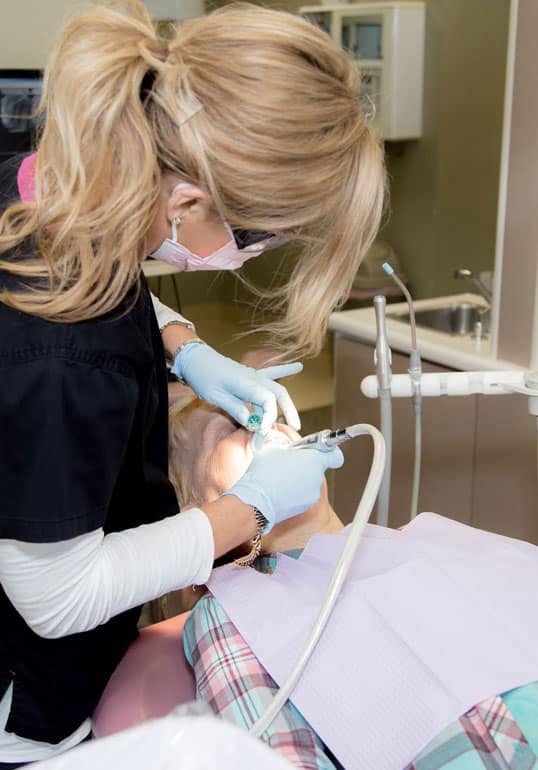Typical Concerns Concerning Dental Veneers Answered
Dental veneers have actually become an increasingly desired choice for those aiming to improve their smiles, yet lots of individuals continue to be uncertain about various facets of their use. Key inquiries usually develop concerning the application procedure, durability, and potential threats connected with these cosmetic improvements. The difference in between porcelain and composite veneers can dramatically affect one's choice. As we discover these typical questions, it ends up being important to take into consideration not just the benefits yet likewise the effects of going with oral veneers in pursuit of a much more confident look. What variables should one evaluate prior to making such a decision?
What Are Dental Veneers?
Dental veneers are thin, tailor-made coverings crafted from porcelain or composite material that are designed to cover the front surface area of teeth. These oral prosthetics serve both practical and visual objectives, providing an option for numerous dental blemishes, including staining, chips, gaps, and imbalance. By sticking to the teeth, veneers can significantly improve the general look of a smile, producing an extra uniform and appealing appearance.
Porcelain veneers are specifically preferred for their all-natural translucency and stain resistance, making them an excellent choice for individuals seeking long-lasting results. On the other hand, composite resin veneers are typically more economical and can be applied in a single go to, yet they might not offer the same resilience as porcelain options.
The decision to choose dental veneers typically originates from a wish for aesthetic enhancement, however patients need to additionally consider factors such as the longevity of the product, upkeep needs, and the possible demand for tooth decrease (Veneers). Ultimately, dental veneers represent a reliable and flexible option for accomplishing a glowing smile, dealing with individual aesthetic requirements while promoting confidence and self-confidence
How Are Veneers Applied?
The application procedure for veneers calls for careful planning and precision to ensure optimum results. The treatment usually starts with a detailed assessment, where the dental practitioner reviews the individual's dental wellness, talks about desired results, and figures out the appropriate type of veneers, whether porcelain or composite material.
When the therapy strategy is developed, the dental expert prepares the teeth by removing a slim layer of enamel, normally about 0.5 mm to 1 mm, to accommodate the veneer. This action is vital as it makes certain a correct fit and avoids the veneers from appearing large - Porcelain Veneers Washington DC. After prep work, impacts of the teeth are taken to create custom-made veneers that match the individual's unique oral framework and aesthetic choices
While the long-term veneers are being made in a dental laboratory, short-lived veneers may be put to protect the ready teeth. When the irreversible veneers are ready, the dental practitioner will meticulously bond them to the teeth using a solid dental adhesive. Final modifications are made to make sure correct alignment and attack, adhered to by polishing for an all-natural appearance. The process finishes in a follow-up consultation to keep track of the veneers' fit and the patient's fulfillment with their new smile.
What Are the Perks?

Additionally, veneers are known for their sturdiness and resistance to discoloring contrasted to all-natural teeth. Made from high-quality materials such as porcelain or composite resin, they can keep their look for many years with proper care. This durability makes them a practical investment in one's oral look.
Along with aesthetic enhancements, veneers can also add to boosted dental wellness. By covering harmed or deteriorated teeth, they can supply added assistance and defense, aiding to avoid further degeneration or deterioration. This protective element can decrease the demand for more extensive oral treatments in the future.

How Much Time Do They Last?
With appropriate care and upkeep, dental veneers can last anywhere from 10 to 15 years, making them a long-lasting remedy for boosting one's company website smile. The longevity of veneers mostly relies on the product used, the quality of the preliminary placement, and the view publisher site client's adherence to dental health practices.
Porcelain veneers are known for their sturdiness and resistance to discoloration, generally lasting closer to the 15-year mark when taken care of properly. Compound veneers, while extra affordable, may call for substitute faster, typically within 5 to 10 years due to their vulnerability to use and staining.

Furthermore, wearing a mouthguard throughout sports or nighttime can supply extra security. Ultimately, while veneers offer a considerable visual enhancement, their durability is substantially affected by the commitment to appropriate oral treatment and normal consultations with a dental expert.
Exist Any Type Of Dangers?
Thinking about the transformative results of oral veneers, it is necessary to acknowledge the prospective dangers linked with their application. While veneers can enhance the appearance of teeth, the treatment involves the removal of a thin layer of enamel, which can enhance tooth level of sensitivity and vulnerability to degeneration.
One significant risk is the opportunity of incorrect positioning or fitting, leading to discomfort, bite misalignment, or even damage to the underlying tooth framework. Furthermore, if the veneers are not maintained appropriately, they can become stained or cracked in time, necessitating substitute.
Patients may likewise experience allergic reactions to the materials used in the veneers, especially if they have sensitivities to certain dental compounds. In addition, while veneers are resilient, they are not indestructible; extreme pressure from clinching or grinding can result in fractures.
It is vital for people to speak with a qualified dental specialist to examine their private dangers and to comply with aftercare guidelines diligently. By recognizing these dangers, patients can make enlightened choices regarding their dental veneer treatment and ensure the long life and success of their enhancements.
Verdict
In recap, oral veneers stand for an important cosmetic solution for boosting smiles, with considerations concerning their application, advantages, longevity, and linked threats. Their efficiency is affected by elements such as the selection of material, with porcelain offering exceptional toughness compared to composite choices. Proper care and upkeep are necessary to take full advantage of the life-span of veneers. Inevitably, notified decision-making regarding dental veneers can bring about adequate aesthetic results and improved oral health.
Dental veneers are thin, tailor-made coverings crafted from porcelain or composite material that are made to cover the front surface area of teeth. After prep work, impressions of the teeth are taken to produce custom-made veneers that match the person's unique dental structure and visual choices.
While the irreversible veneers are being made in an oral research laboratory, temporary veneers may be put to safeguard the ready teeth. As soon as the permanent veneers are ready, the dental professional will very carefully bond them to the teeth using a solid oral adhesive. Inevitably, notified decision-making relating to oral veneers can lead to adequate visual outcomes and enhanced dental health and wellness.